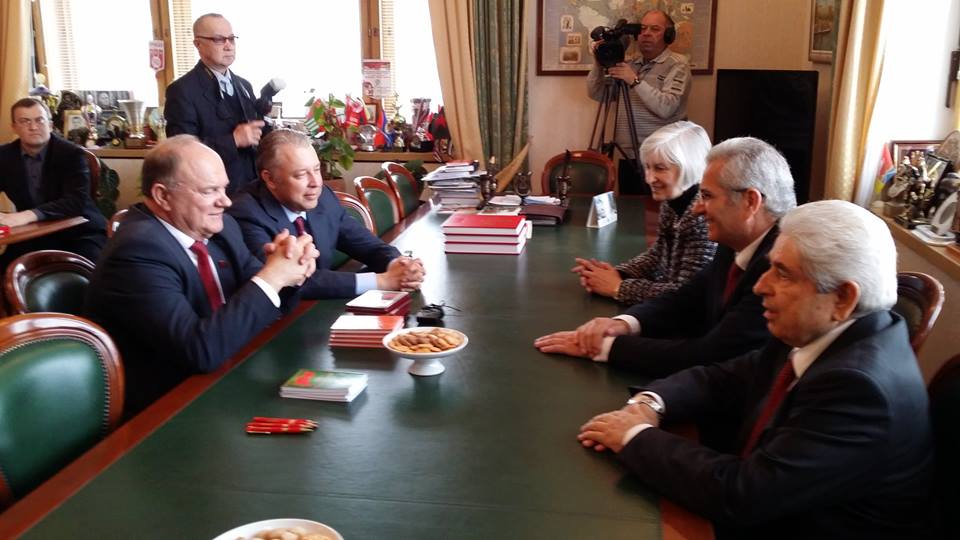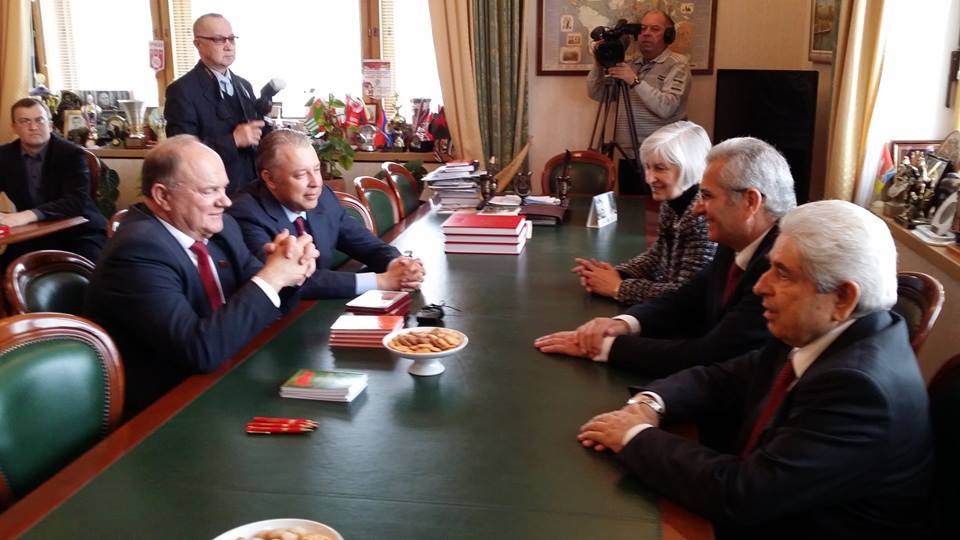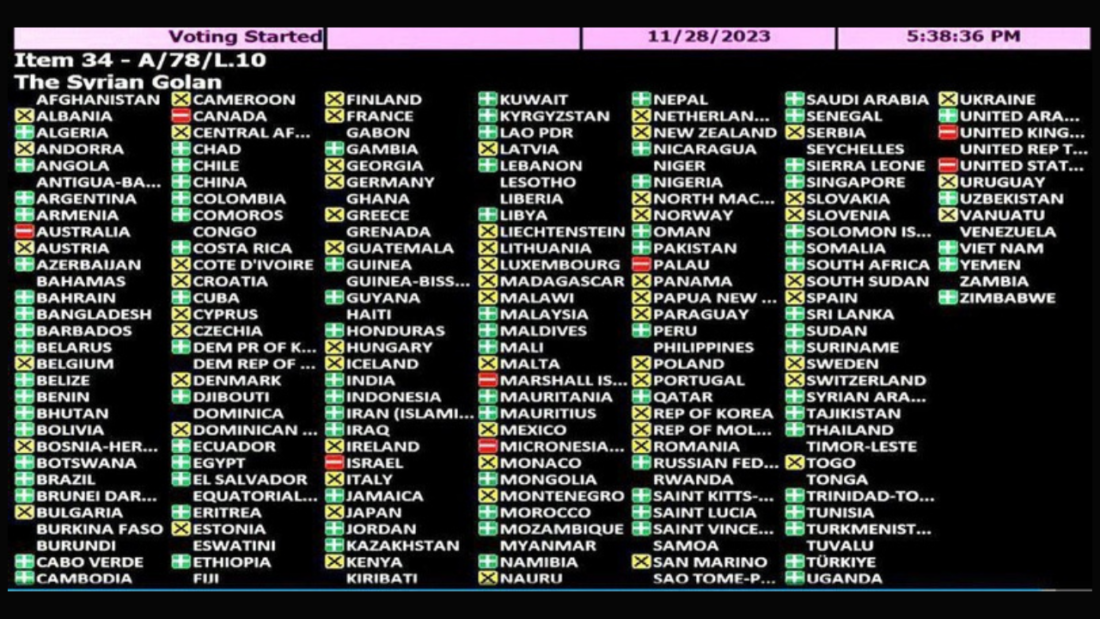
AKEL contacts abroad regarding the Cyprus Problem
Press conference of Andros Kyprianou, General Secretary of the C.C. of AKEL, on his contacts in Athens, Moscow and AKEL’s meeting with the President of the Republic regarding the developments in Cyprus
AKEL C.C. Press Office, 17th April 2014, Nicosia
AKEL has of late undertaken initiatives with regards the Cyprus problem, considering its solution decisive for the future and perspective of Cyprus and the Cypriot people. It is within this framework that we discussed with the President of the Republic, the government/state and political leadership of Greece and the Foreign Minister of the Russian Federation, the President of the Russian Duma and with the leaderships of Russian political parties, the developments with regards the efforts to solve the Cyprus problem.
When we state that for AKEL, the Cyprus settlement is a priority, we fully mean it. The solution of the Cyprus means the liberation and reunification of our country and people; it means a permanent and lasting peace; the creation of conditions for the prosperity for all the people of Cyprus – Greek Cypriots, Turkish Cypriots, Maronites, Armenians and Latins.
In contrast, the non-solution of the Cyprus problem does not mean “the Turkish Cypriots on one side and us (the Greek Cypriots) on the other side and everything would be fine.” The non-solution of the Cyprus problem means that in reality we would be handing over half of our homeland and mortgaging the other half, to Turkey. It would mean cohabitating with the thousands of Turkish troops and settlers, as well as with a formation that will be controlled by Turkey itself, inside our own country.
As time passes by without results, the occupational fait accomplis become more entrenched and consolidated. Basic principles and aspirations of the Greek Cypriot side are gradually undermined. The situation on the ground is deteriorating, resulting in the possibility for substantial territorial adjustments eroding. The Greek Cypriot properties in the occupied areas are also altering, making it more and more difficult to restore them to their lawful owners. Some of them are being sold at humiliating prices in Turkey by the so-called Compensation Committee that is regretfully functioning with the blessing of the European Court of Human Rights. The numbers of settlers are constantly rising, already constituting a majority in the occupied areas. The Turkish Cypriots who support the solution of the Cyprus problem and reunification, with every opportunity are expressing their anguish and deep concern about the on-going colonization of the occupied areas which is threatening the very identity of the Turkish Cypriot community, altering the demographic structure and reducing the possibilities for an agreement. If the deadlock continues there must be any doubt that the efforts to upgrade the pseudo-state will be gaining ground continuously.
We do not say all this to force the consent of the people to any unacceptable solution. We state this because the people must stopped being comforted with dead-end and empty rhetoric. We need to present the facts to the people and give him the opportunity, based on given objective facts, to form their opinion.
In the discussion surrounding the solution of the Cyprus problem, we have never agreed with the notion that we must not debate anything by rejecting everything; neither do we share the view that we need to discuss everything without rejecting anything. I repeat that the solution of the Cyprus problem was, and remains for AKEL, a life goal. The solution of the Cyprus problem will relieve our people from the torment of the occupation and create solid foundations for its progress and prosperity. However, it can also create new pre-conditions for economic growth and development. Let me clarify however that this in no way can function as a pistol put to our head in order to force us to accept an unacceptable solution.
For AKEL it is extremely important that we move ahead with this critical effort to resolve the Cyprus problem by having very clear strategic goals. The solution must be based on the principles of International Law and on those principles the European Union is founded on. The solution of the Cyprus problem must be based on the relevant UN resolutions and the High-Level Agreements between the leaders of the two communities; it must ensure the full demilitarization and withdrawal of the settlers; safeguard the human rights and fundamental freedoms of all Cypriots, including the right of the refugees to return to their homes and properties. It should be a bi-communal, bi-zonal federation with the single sovereignty, a single international personality and a single citizenship of the United Cyprus Republic guaranteed. These are the guidelines of our struggle and we must work for these with consistency, without regressions, deviations and vacillations.
In all the contacts we had so far on the Cyprus problem we noted the special interest shown by the U.S. in the efforts to solve the Cyprus problem. If this interest will aim to achieve a solution as defined by the agreed framework, then this interest is welcome. However, because our people have bitter historical experiences, the Cypriot people are justifiably worried. This is the reason why we urge President Anastasiades to show consistency and assertiveness in the negotiations. That’s why we insist on the involvement of all the members of the United Nations Security Council in the efforts to solve the Cyprus problem. We do not forget that the U.S. interest in a solution to the Cyprus problem is directly linked to their plans in the wider region that are focused on the exploitation of the hydrocarbons.
We had repeatedly warned that the delay on the part of the Government in the implementation of the projects and plans that had been elaborated by the Government of Demetris Christofias will enable those who have been waiting for some time to promote their own plans and schemes. Unfortunately, not only have our warnings not been listened to, but the Government has literally dismantled all the plans and projects that had been drawn up and prepared by the Christofias administration. This, coupled with the inexcusable neglect demonstrated, has led us to face the danger that Cyprus will not eventually become a regional energy hub, but rather a pawn in the plans of powerful interests.
Last but not least, is the “much-troubled” issue of unity on the domestic front. We must all realize that the least we owe to the future generations is not to deliver them a partitioned Cyprus, which would be ashamed of its past and terrified of its future. This is why they must ensure, both the Government and the President, that mutual respect and collective handling will not be momentary empty promises, but rather a conscious political necessity. This, coupled with the respect to the long-standing positions of the National Council (Note: an advisory body to the given President of the Republic on the Cyprus problem composed of all the parliamentary political parties and former Presidents) will create the pre-conditions for the promotion of a just, workable and viable solution to the Cyprus problem.
Finally, I would like to point out our main conclusions after the round of contacts we had:
1. It is imperative not to take again the path of the adventure we experienced with the issue of drawing up a joint communiqué. To avoid this, the process should continue from where it left off. It would be utopian for anyone to believe that if we abandon the Christofias – Talat convergences we can come up with something better, indeed with Mr. Eroglu in the leadership of the Turkish Cypriot community. Besides, the 2008 – 2012 document prepared by former UN Special Representative Downer outlining the Christofias-Talat convergences achieved, despite the inaccuracies we pointed out in it, proves that all the talk about supposed “unacceptable concessions” by Christofias is a myth .
2. We agree with the observation of the Greek Prime Minister that this effort requires unanimity among the political forces and that as far as AKEL is concerned, we will work in this direction. With satisfaction we note the pledge made by Greek Prime Minister Samaras that any decisions that need to be taken in Cyprus will be respected by his Government.
3. We also note with satisfaction the reaffirmation of the position of the Russian Federation with regards the Cyprus problem. Both the Foreign Minister of the Russian Federation Mr. Lavrov and the other interlocutors reiterated their support for the solution of the Cyprus problem on the basis of principles.
4. Finally, we insist that a more active participation in the process of all the permanent members of the UN Security Council, and in particular of the Russian Federation, will contribute towards achieving a just, functional and viable solution of the Cyprus problem.





